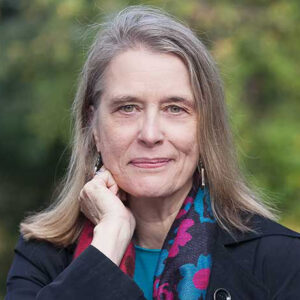Growing up, our father warned us ‘Children should be seen and not heard.’ It was his parental way of controlling or at least stifling our behaviour. If my sister and I were expected to be seen but never heard—we were being trained to be passive observers without a voice or opinion. This saying has an emphatic biblical tone like a forgotten 11th Commandment.
The first appearance of this proverb was in the fifteenth century and originated in medieval England. It comes as no great surprise that in its original form it was young women who were being told to keep quiet. John Mirk, an Augustinian clergyman wrote:
‘Hyt ys old English sawe: A mayde schuld be seen, but not herd.’
A ‘sawe’ was a term for a saying or proverb. A ‘mayde’ was normally a young unmarried female, although it was also used to denote celibate men. (There was even non-binary terminology six centuries ago!)
History and religion are both potent cultural and behavioural influences and this proverb has come down to us via both of them. For me, it is actually a warning. Because the obvious question to ask next is what happens if we don’t conform? If a young woman is vocal, opinionated or argumentative, what will be the consequences?
This is just one of a number of English maxims that may seem laughable today but still carry cultural weight. ‘The bigger the better,’ Good things come in small packages,’ ‘What’s good for the goose is good for the gander,’ ‘One man’s meat is another man’s poison,’ ‘Birds of a feather flock together,’ ‘Opposites attract,’ ‘Actions speak louder than words.’ It is a colourful list. The problem with maxims like these is that they are assumed to tell a general truth about life even if they aren’t true. Maxims become mantras repeated over and over again.
And it is startling to realise that such an antiquated saying was repeated by our father, and other parents, in mid-century America as an edict to ensure that children did not question authority and to silence any disagreement. In our household, to disagree was to be unladylike and to show bad manners and we would inevitably get into trouble when we voiced opinions contrary to those of our parents. When we try to replace ‘Girls’ with ‘Boys should be seen and not heard,’ it doesn’t work because it is not a cultural norm to silence boys and their opinions.
But the real problem with this proverb is the idea of one person demanding silence of another person, at the expense of that person’s inherent need for verbal self-expression. In our case, our authoritarian home life failed to teach us basic survival skills because we were actively taught not to protest anything and never to say no. The result was that we did not understand the appropriate way to question authority or how to stand up for ourselves. “Personhood” came very late for us, after many painful mistakes and misunderstandings, mistakes that could have so easily been avoided.
Remember the childhood saying: ‘Sticks and stones may break my bones but words will never hurt me’? Physically words may not harm you but as any advertising mogul will tell you the repetition of words is key to any successful marketing campaign to sell an idea or product.
Maxims can be dangerous because they enshrine cultural ideas and attitudes. Culture is always changing and so, it is surprising that so many of these maxims hang around for centuries. For me, ‘Children (Girls) should be seen and not heard’ is a saying that should have been squelched when it first appeared in the fifteenth century.
